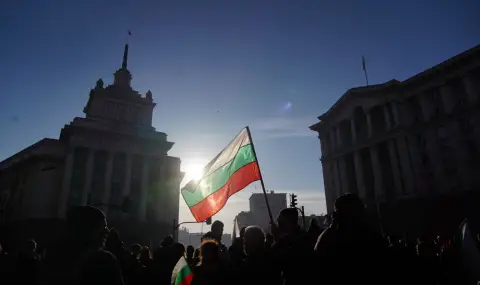The elections on October 27 are the seventh in a row for the last three years in Bulgaria, recalls the Austrian "Der Standart" and indicates the main reasons for this: either a government cannot be formed as a result of the vote, or it does not last long. The conservative clientelist party GERB, which leads in votes, is struggling to find coalition partners as corruption suspicions alienate reform-oriented pro-European forces. And the other parties are either friends of the Kremlin or are also considered corrupt. Thus, Bulgaria slides from one temporary solution to another, and only one remains stable: President Rumen Radev, who takes pro-Kremlin positions, commented on the Austrian edition.
Pro-Russian forces in power in Bulgaria?
This political instability is certainly beneficial for the Kremlin and to some extent explains the rise of the pro-Russian party "Vazrazhdane", which may become the second political force in the upcoming early elections on October 27, "Der Standart" further writes. referring to polls before the vote.
The Austrian edition quotes Ruslan Stefanov from the Sofia Center for the Study of Democracy (CID), according to whom the thinking of many Bulgarians has practically been conquered by Russia. When, for example, Vladimir Putin addresses Bulgaria specifically, when he threatens a nuclear strike, this encourages the forces in the country who want rapprochement with Russia.
"This conquest began in the 19th century and continued during the Soviet Union, which is why a large part of the Bulgarian population has a positive attitude towards Russia," Stefanov told the Austrian publication. According to the author of the article, Adelheid Wölfl, one of the most important mouthpieces of the pro-Kremlin propaganda is the new Patriarch Daniil. About his election, Archimandrite Nicanor said that it was carried out "as per the KGB textbook,", the publication recalls.
At the same time, Bulgaria does not reliably implement the EU sanctions against the Kremlin, "Der Standard" further emphasizes. It is true that after the beginning of the Russian aggression against Ukraine, 70 Russian spies were expelled from Bulgaria, some of them Orthodox priests, but according to Ruslan Stefanov, this happened only on the basis of information from other NATO countries, and not because of a consistent policy of the Bulgarian authorities. "The capacity to investigate the influence of the Kremlin is almost zero,", criticizes the expert, and adds: "The ability to impose sanctions is also decreasing because the pro-European parties have lost support.
Thus, it is becoming increasingly likely that pro-Russian forces will come to power in Bulgaria, comments "Der Standart" and quotes Vesela Cherneva from the European Council for Foreign Policy: "It is possible that GERB will form a coalition with "Vazrazhdane" if Donald Trump wins the US presidential election. Hungarian Prime Minister Viktor Orbán is seen as a mediator between Eastern Europeans and Trump. Orban was also once in a coalition with the far-right party "Jobik". If Boyko Borisov now works with the far-right, he will benefit from this because he will look moderate.
Further on, the Austrian edition dwells on the rise of the "Revival" since 2021, when the party first entered parliament with just under 5 percent support. From then until today, the pro-Russian party has increased its support at least three times, writes "Der Standart" and recalls two of the latest "Revival" initiatives, behind which Russian influence is visible - the requested law on "foreign agents", which aims to stigmatize non-governmental organizations, as well as the law, adopted in the meantime by the parliament, prohibiting "propaganda" of non-traditional sexual orientation. Of course, there is no such propaganda in Bulgaria - here it is more about inciting hatred towards sexual minorities, commented "Der Standart".
It's not just "Revival"
Besides "Revival", BSP and "Velichie" are also considered close to the Kremlin. For example, the socialist MP Borislav Gutsanov constantly repeats the Kremlin's main points and leads a campaign against the expansion of wind energy along the Black Sea coast - perhaps because this would allow Bulgaria to become more independent from Russia, writes the Austrian "Der Standart".
